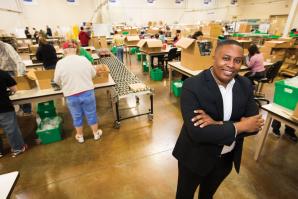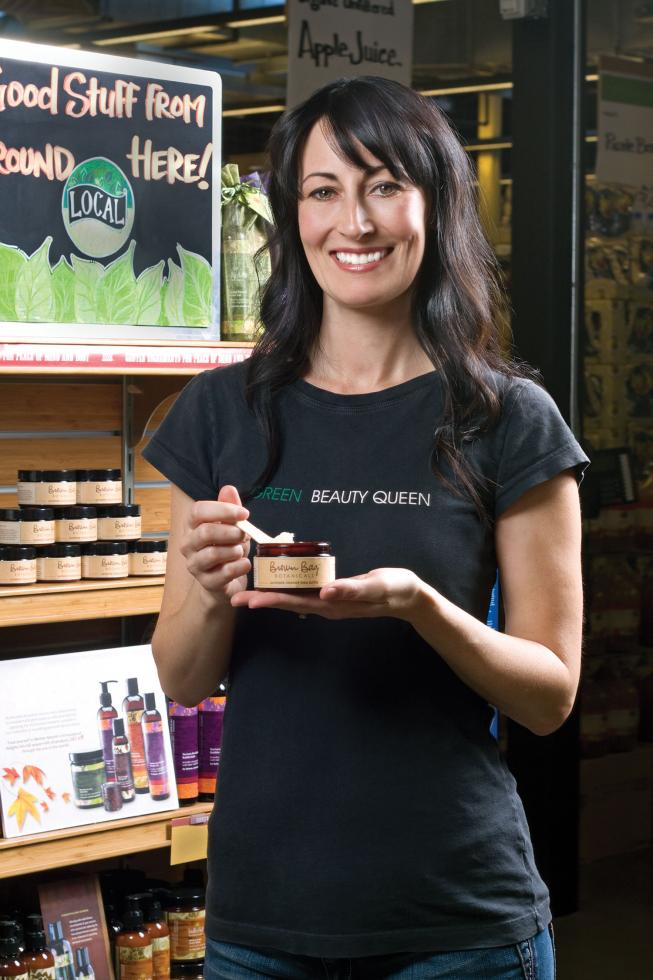Like many independent business owners, Christine Trice has a product she believes in and plenty of potential customers. Trice, the owner of Sacramento-based Brown Bag Botanicals, also has a limited marketing budget to reach those customers.
So when Whole Foods Market contacted her in June about her organic skin-care products, the retail chain didn’t have to wait long for an answer.
“It was a huge ego stroke,” she says. “I said, ‘Let me think about it … yes!’ Then I did a couple of cartwheels.”
Trice says that while landing a deal with a major retailer provides valuable exposure and increased sales volume, the process isn’t easy and the results aren’t certain.
Olivier Rubel, an assistant professor of marketing at the UC Davis Graduate School of Management, echoes these sentiments. When products from small businesses and entrepreneurs are picked up by major chain stores, it can be “both a blessing and a curse.”
It can lead to greater exposure and, potentially, new markets. Selling to large retailers is proof that these small businesses are selling competitive products and able to manage larger orders.
But these deals aren’t without risk, he says.
For one, large companies have more bargaining power.
“The small company is in a weak position that will force it to accept concessions in terms of margins,” he says.
Stacy Paragary, part owner of Paragary Restaurant Group, which operates 12 locations in the Sacramento area, can attest to this. About five years ago, her company was among the first of a few local businesses to sell discounted gift cards through Sacramento-area Costco stores.
Costco buys gift cards from the restaurant group at a steeply discounted price and sells them for $79.99 for $100 in cards at five locations.
But, while the per-meal profit is less, the trade-off in volume is worth it, Paragary says, adding that her company sells Costco more than $100,000 in gift cards a year. “We’ve always looked at that discount as marketing dollars,” she says.
She knows there are plenty of Costco customers who have never dined in her restaurants, but they will be browsing for holiday gifts and could pick up one of those cards.
“How many of us go to Costco and we have a list, but we end up buying 10 times what’s on the list because you’re standing there and think, ‘Hey, this is a good deal,’” Paragary says.
Likewise, the recipient of that gift card may also be a new customer. If someone sees the name Paragary’s on the shelf, she says, that’s advertising.
With an increasing number of customers buying gift cards at Costco, it means far fewer are buying cards at the restaurants. And when cards are sold at the restaurants, customers tend to expect similarly priced incentives. The restaurants compensate by offering their own specials.
This is partly why she has opted to sell the company’s cards only to Costco during the holiday season. The other reason is a spike in workload.
While landing a deal with a major retailer provides valuable â?¨exposure and increased sales volume, the process isn’t easy and the results aren’t certain.
“It keeps us on our toes,” Paragary says. “(Costco) is usually sending purchase orders daily a week before Christmas. … They want them FedExed overnight and in the store the next morning at 8 a.m. They don’t want to purchase them too far in advance and be stuck with them.” Other times, an employee has had to physically drive to Costco because they needed them the same day.
“You don’t tell them ‘no’ because then you might not be in their stores the next year,” Paragary says.
Trice also has seen the pros and the cons of dealing with big business. She says it’s imperative to prepare for the worst and know how to bounce back when things don’t go well. Almost three years ago, Trice’s products were picked up by the high-end maternity retailer, Babystyle.
“In the blink of an eye after getting that account — which to me was the Holy Grail — they filed for bankruptcy and went out of business,” she says.
So she picked herself up and changed directions. “With the way that the market is, I just had to reposition,” she says.
She realized that making products for wealthy celebrity moms-to-be wasn’t her company’s goal. “I had to get in touch with my core values of why I started Brown Bag Botanicals,” she says. So she shifted her focus to the green-products market, which is in part what attracted the attention of Whole Foods.
This time around, the results look much more promising, but still the experience has required patience, perseverance and impeccable organizational skills. “It was supposed to be a two- or three-week process — and here we are months later,” she says.
After countless phone calls and e-mails with people from the local and corporate levels and stacks of paperwork, she’s hoping for a launch date before Christmas. “I just want a purchase order, so I can sleep,” she says.
Not that she’s complaining. One reason it’s taken so long is that her distribution has expanded from just the Roseville store to possibly all of Northern California, she says. And, she adds that her time and effort will pay off when her line of shea butters finally hits the shelves.
She has plenty of advice for other small businesses who hope to land similar deals with major retailers. It’s important to be proactive, responsive, available and flexible, especially in this economy, she says.
And be visible. Her simple willingness to give back to the community gave her valuable exposure. About two-and-a-half-years ago, she was teaching a class through Borders “trying to empower people to read labels and make educated purchases in skin and body care, regardless of the brand.”
A couple of Whole Foods buyers just happened to be at Borders during one of her classes.
Rubel agrees with Trice’s advice to prepare for the unexpected and be flexible. One of the biggest risks for a small business would be becoming too reliant on one gravy deal, he says.
“It could harm the company because it will be forced to focus only on this big client, which will generate maybe 80 percent of the activity for the small entrepreneur, which means that if something goes wrong in the deal, the small company will lose 80 percent of its activity.”
Recommended For You

Rapid Success
Chris Johnson is an impatient inventor with a purpose
Chris Johnson is the inventor of Rapid Ramen Cooker, a square, microwaveable bowl that cooks ramen in four minutes. What he evidently lacks in patience, he makes up for in ingenuity.

Arcade Winnings
An all-weather accessory company advances to the next round
A slope-loving trio needed durable, weatherproof belts that would fit comfortably, last a long time and look good. So the self-proclaimed ski bums decided to make their own. Olympic Valley-based Arcade Belts launched three years ago from a living room and specializes in belts made specifically for winter-sport enthusiasts.



